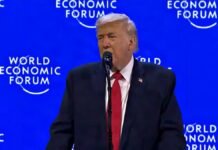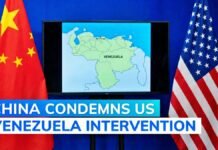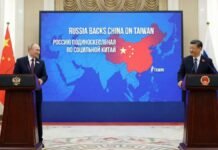
Beijing: The international non-profit organization ‘Reporters Without Borders (RSF) in a report has described China as the country with the most number of journalists in captivity. The report said that at least 127 journalists have been detained by China. Journalists have been detained for reporting and publishing issues deemed “sensitive” by the ruling Communist Party of China. According to Reporters Without Borders, these journalists also include professional and non-professional media persons.
According to the RSF, more than half of these media persons include 71 Uyghur journalists. Since 2016, the Beijing regime has been carrying out a violent campaign against Uighurs in the name of “fighting against terrorism”. The report quoted RSF General Secretary Christophe Deloire as saying that China is losing press freedom. The Paris-based RSF said the report showed the extent of the regime’s campaign of repression against the right to information.
Journalists will undergo 90 hours of training
The watchdog said in a report that journalists are being detained for tasks such as investigating “sensitive” topics or publishing censored information, where abuse can lead to death. The RSF report also revealed how journalists are being forced to become the mouthpiece of Chinese President Xi Jinping. According to the report, in order to receive and renew their press cards, journalists may soon undergo 90 hours of annual training, which will partly focus on Xi Jinping’s views.

Situation worse for Chinese journalists
At least ten journalists and online commentators were arrested in 2020 for reporting on the Covid-19 crisis in the central Chinese city of Wuhan. To this day, two of them – Zhang Zhan and Fang Bin – are still in custody. The situation is even worse for Chinese journalists. The report also referred to a decision introduced in October 2019 that all Chinese journalists should use a smartphone app called “Study Xi, Strength the Country”, which can enable the collection of personal data. The RSF ranked China 177th out of 180 in the 2021 World Press Freedom Index, just two places above North Korea.




















































